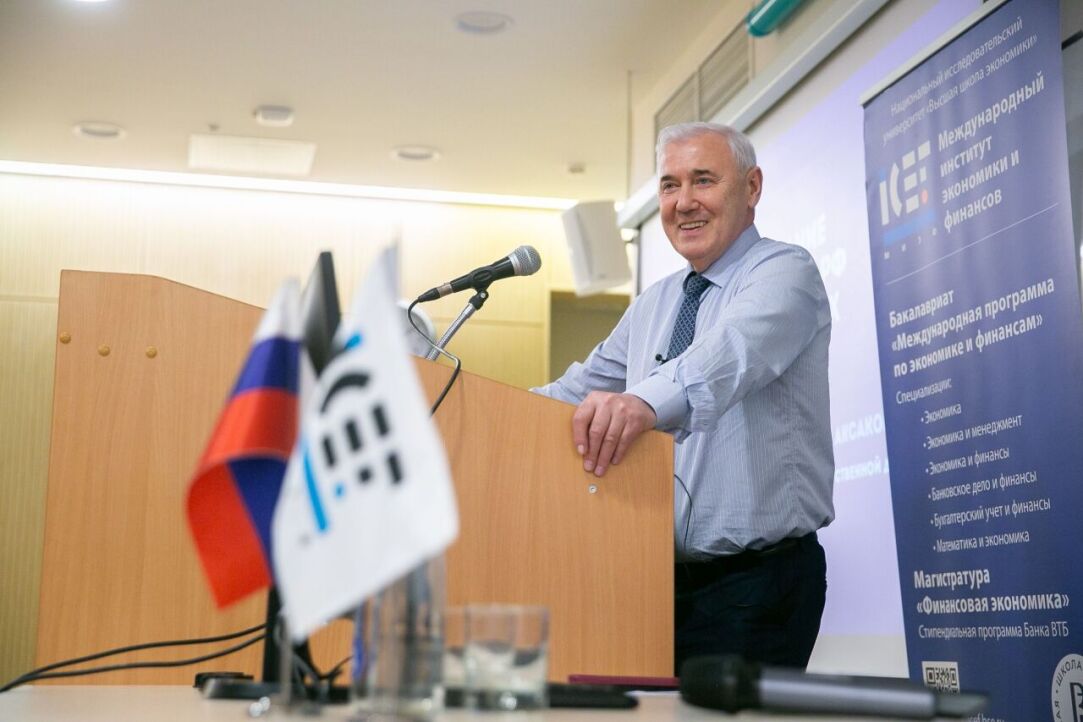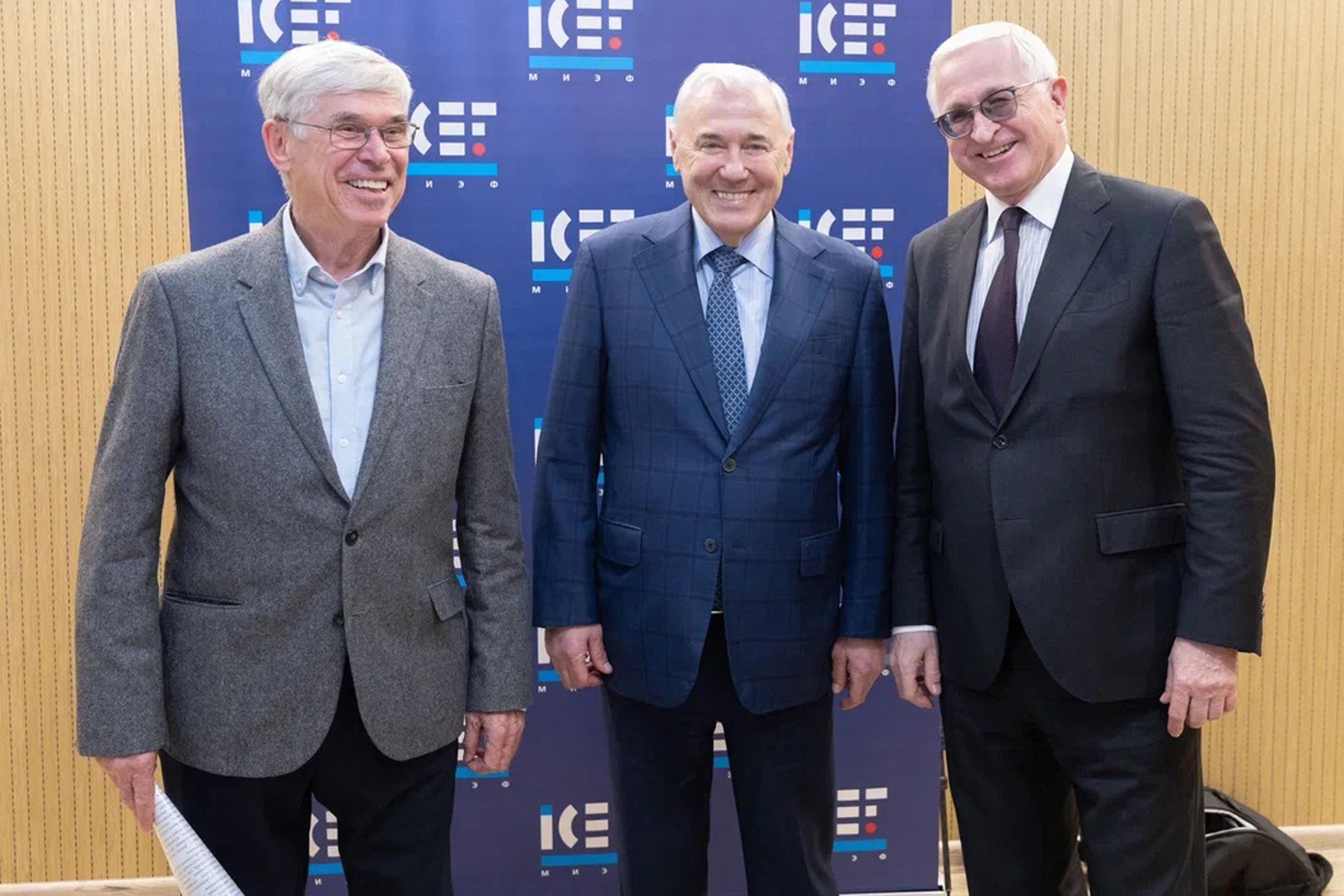It’s All About Trust

Russia’s financial sector is back on track after having been placed under sanctions. With regulators introducing more effective tools, the businesses and individuals are now enjoying more investment opportunities and financial institutions greater trust. Anatoly Aksakov, Chairman of the Russian State Duma’s Financial Market Committee, met with the students of HSE ICEF to tell them more about the current status quo and the future of digital ruble and other cryptocurrencies.
The Q&A with Anatoly Aksakov was one in a series of sessions designed to connect the ICEF students with field experts. Our students were curious to know about the trends on the financial market, the future of the digital ruble and other cryptocurrencies, and how financial institutions are regaining trust and stability. Moderating the session was HSE President Alexander Shokhin, who also serves as President of the Russian Industrialists and Entrepreneurs Association.
Describing the Russian financial system’s performance under sanctions, Anatoly Aksakov said it had demonstrated sufficient stability, facilitated by the Russian government and the Bank of Russia’s competent policies “designed to keep markets and banks afloat.” According to Aksakov, the base rate increase to 16% has helped to slow down the inflation, which stood at a mere 0.39% in March 2024, compared to 0.68% in February.
Anatoly Aksakov further stressed the importance for the financial institutions and the banking system to enjoy greater trust as a key factor towards stronger financial markets. One mechanism to stimulate investment activity is offered by next-generation Personal Investment Account, known also as Type 3 account or PIA-3, first introduced in 2024. Users are free to open as many as three PIA-3s and credit them with funds in any amount. PIA-3 holders enjoy dual benefits: they are exempt from the investment income tax and are entitled to the contribution tax deduction.
One key advantage to having a PIA-3 is that it increases opportunities for investors through a more flexible and beneficial tax policy. According to Anatoly Aksakov, PIA-3 offers a way to make investment securities attractive for even those who never even considered investing in securities. With simplified procedure for investing, PIA-3 can raise public awareness about the current opportunities and ultimately increase the number of the active players in the market.
Another way to increase the level of trust is by making transactions more transparent and employs technologies such as digital ruble and smart contracts. “These tools offer more effective control of earmarked funds, while reducing the risk of fraud and unconscientious use of capital,” said the Russian State Duma’s Financial Market Committee Chairman.
Speaking about the digital ruble, Anatoly Aksakov said he supports the experiment and is now making all his large purchases using QR codes as “a highly convenient payment option.”
“Digital ruble allows a more efficient and secure mode of payment. With blockchain and digital protocols involved, paying in digital rubles guarantees a higher degree of protection against fraud, data leaks and related threats, which makes digital ruble one of the safest means of payment,” said Anatoly Aksakov.
When asked to share his vision of the future of the cryptocurrencies in Russia, Anatoly Aksakov said: “Cryptocurrencies will surely be granted legal status and will operate under strict supervision of the state to prevent any possible misuse".
As we heard from Anatoly Aksakov, the hearing on the bill to regulate the use of digital assets in international settlements can be held as early as April. At the initial stage of its adoption, the digital ruble will circulate in test mode designed to show how credible it is.

At the end of his talk Anatoly Aksakov thanked the audience for meaningful questions and advised to make the most of opportunities available at ICEF. “Go for it! I’ll meet you after graduation.”
Click here to join Anatoly Aksakov’s Telegram channel.
Author: Vlada Bayankina, HSE Economic Journalism Laboratory, intern researcher